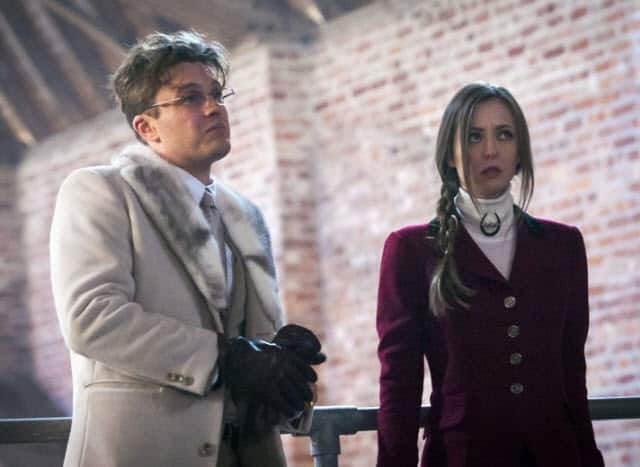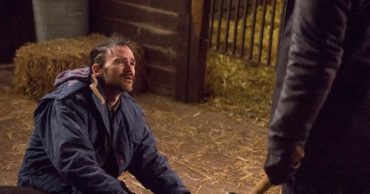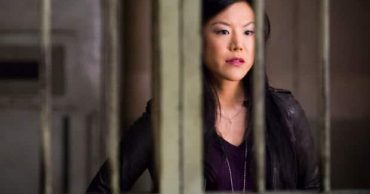
Hannibal often asks us to suspend our collective disbelief as viewers. Some of the displays of corpses and the processes of achieving those displays are so out there that thinking about the plausibility and practicality surrounding them is a fool’s errand. Similarly, there are times when characters lack a possession of certain information or else make dumb decisions that can cause us to question their intelligence and efficiency as human beings. This is Hannibal‘s design. The series gets plenty of passes for being what it is. In a show that isn’t as meticulously crafted or smart about showing its themes and ideas on the screen, suspension of disbelief becomes more cumbersome. With Hannibal, it’s very easy to think something like “Well, this doesn’t make a whole lot of sense, but man, this show is good, so I don’t care.” More than any other episode thus far, “Naka-Choko” tests those boundaries, and I can see why this might be too much for some people.
Are we supposed to believe and accept that Will Graham is now someone who murders people dispassionately? Is he really willing to create one of those displays for the sake of the game he’s playing with Hannibal? Does he actually kill and eat Freddie Lounds by the end of this episode? All legitimate questions. The frustrating part is that “Naka-Choko” doesn’t give us all the information we need. Sometimes, Hannibal is great about teasing certain facts or outcomes. Notice how the characters are still talking around Chilton, not saying definitively if he’s alive or dead. Other times, viewers need to hear or see certain things, or else it’s easy to become annoyed. So, despite all the evidence that suggests that Will really has gotten rid of Freddie and has offered part of her up onto his and Hannibal’s plates, I feel like I needed some kind of visual assurance there. But the evidence is staggering. Most overt is Will saying that they’re eating long pig, which is a term used to mean human flesh.
Of course, characters in Hannibal lie all the time, so that’s not necessarily gospel coming out of Will’s mouth. However, the decision to score the scene in a way that mimics some of the times we’ve seen Hannibal eating his victims suggests that the line separating Will and Hannibal has been completely blurred to the point of indistinction. Indeed, the final image is an amalgamation of their faces, pointing out that a transformation has occurred. And if that isn’t enough, just thinking about the logistics makes you wonder how Will could let Freddie go after what she has seen and after attacking her (without spoiling anything, there’s also an iconic image from Harris’ novel in the “Next Week on Hannibal” segment that doesn’t bode well for Freddie).
Are we to believe, then, that Will is making these decisions consciously and is willing to go to these lengths, so far removed from the person he was to begin with in Hannibal? At the very least, this becomes an issue in terms of relating to or sympathizing with the character. As awful as Hannibal is, there are some lines that, once crossed, permanently change how we perceive people. We’ll have to see how this unravels, but I can’t imagine this not being a character-defining decision.
So much of “Naka-Choko” is difficult to define. This is as good a time as any to try to break down the central love sequence. Before analyzing it, though, it’s worth pointing to Vincenzo Natali’s work (this is the second episode of the season he has directed).
[Photo via NBC]
 Follow Us
Follow Us





